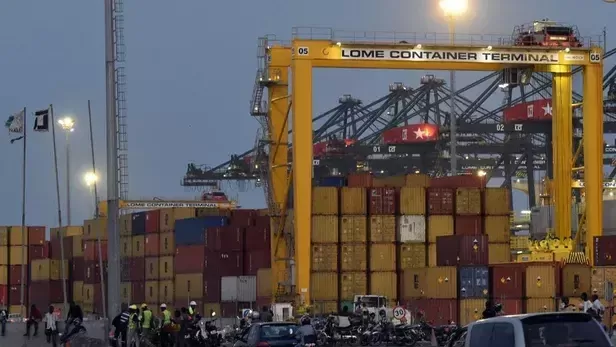![]() Reducing our dependency to China, it is possible!
Reducing our dependency to China, it is possible!
Le Figaro/Tribune by Francis Journot, published on June 08, 2020 - By relying more on its regional market, Europe is able to significantly reduce its dependence on Chinese industry, says Francis Journot.
Francis Journot is a consultant, entrepreneur and former publisher of economic and social trade press. He is doing research in economics for the “International Convention for a Global Minimum Wage” and “African Atlantic axis” projects. He runs the site Collectivité Nationale.
Few risks of shortages or sharp price increases
In the light of a crisis that reminds us of the fragility of our existence and a confinement that has made us aware that we can deprive ourselves of over-consumption for two months, it seems certain that we would be able to survive a period of transfer of Chinese industry. Some products that are not always indispensable could become scarce, but let's be reassured, most imports would continue to pour in because companies and their shareholders do not appreciate consumers deserting the stores. Every search for new subcontractors would result in a multitude of competitive service offers around the world, and hundreds of thousands of engineers would want to participate in the development of production processes. As for the vital area of food, European countries have little dependence on the rest of the world. So it is doubtful that we should fear real shortages or a significant increase in the prices of our consumer goods, but we could, on the other hand, consume less but better and rejoice in relocations that would, over the months and years, lift millions of Europeans out of unemployment and poverty.
A new European paradigm based on a broader regionalization of production and trade that includes more Africa.
Rising wages and manufacturing costs in emerging or developing countries accompanied by a drop in direct investments, technology theft and counterfeiting, the environmental cost of transport and consumer demand for more local products, we have been witnessing for several years now to phenomena which indicate or provoke a decline in globalization. Although not yet evident, the Covid-19 crisis and the rise in unemployment could accentuate a trend towards regionalization of trade. Europe could initiate a new European paradigm of regionalization of value or production chains within the framework of the EU or a less political economic community if it disappears. But relocating activities to France would not be easy. One would have to exempt oneself from sclerosing ideologies with their elitist postulate of selecting only the so-called strategic sectors. This has justified the delocalization of other activities and has proved to be erroneous. Manufacturing jobs generated many indirect and induced jobs whose contributions and taxes better financed public spending, moderated the cost of labor, allowed maintaining a better level of technical training that benefited all sectors, including the most strategic, and thus participated in a virtuous economic circle.
The new conception of trade proposed here obviously differs from the unrealistic recommendations of autarky and the end of globalization made by the former Minister of Economy Arnaud Montebourg. For beyond the slogan "made in France" and the theme of reindustrialization regularly exploited for political purposes by personalities in search of publicity and voters but often from government parties whose economic policies have favored deindustrialization, there remains the reality of the cost of labor but also the pitfalls of a highly politicized dogmatic trade unionism and the innumerable norms that discourage industrialists. The mechanisms of mutualization and equalization would be likely to promote the creation of ecosystems and jobs, but a relaxation of European or national treaties and regulations that make the management of French companies more cumbersome would also be desirable.
There are many obstacles to a massive return of jobs in France and sometimes even in Europe.
With a rich market of 500 million consumers, the growth potential in Europe is enormous. The lower-cost European countries would experience full employment, but in other countries we could come up against a mismatch in the supply of industrial jobs for job seekers who are not attracted by these opportunities. In France, skilled labor has virtually disappeared in many industrial sectors, but also in many European countries. The cost of training for each job is often around 20/50 K€, mostly borne by the company, but this does not guarantee that candidates will be able to carry out work for a long time that is often considered to be arduous. Today, small and medium-sized companies in the industry are unable to train more than one or two jobseekers per year. It is doubtful whether European industry will be able to recruit all the necessary staff. Moreover, the level of exports could erode after a few years. China will further reduce imports to cope with unemployment that could weaken power and the USA is showing a strong willingness to relocate since 2017. Western companies established on its soil have brought it the technologies that will enable it to meet all the needs of its consumers. Also, new non-European prospects would be harder to find and each European country would try to pull its own cover in order to gain market share within Europe, as is already often the case today. The luxury goods sector would continue to do well, but there are fears that the number of orders would decline in leading-edge sectors facing growing competition, including China. One could hope for the emergence of European leaders in new fields, but this would take time. Nevertheless, France and the countries of Europe would welcome the reduction in imports and a return to prosperity in many sectors. But after an upturn in activity and a drop in unemployment, the economy could turn in circles and return to low growth and employment rates.
With sluggish growth and unemployment in the EU, poverty and galloping demographics on the neighbouring continent, we are facing many challenges
So we are confronted with these challenges but also many others for which we will have to try to find solutions sooner or later. Among these, the phenomenon of the galloping demography of a continent less than 150 kilometers from the first European coasts, which could have two and a half billion inhabitants in 2050. An important part of them would try to flee misery and hunger by migrating to a weakened Europe, hardly able to offer better living conditions. However, the foundations of our civilization, political and economic, cultural and religious, would not survive. The social and security chaos that could set in could precede or surpass the climate collapse promised by environmentalists who are committed to an ideology of degrowth to which our African friends who are struggling to feed themselves may not fully adhere. So perhaps, in order to solve our growth problems in the years to come but also contribute to poverty reduction in a nearby continent that is experiencing exponential demography, we could reflect on a model that broadens our cooperation with it.
China perverts rather than enriches the African continent
Today, China intends to get its hands on this enormous reservoir of raw materials. But it perverts more than it enriches this continent by flooding it with low-cost products from Asia and thus makes craftsmen or small businesses that used to make local products more precarious. The factories created belonged to companies dependent on Beijing, whose Chinese foremen ran some of the worst paid workers in the world. These low wage levels thus allow China to flood Western countries with low-end products without benefiting the African people in terms of social progress. But this rampant colonization, which is increasingly badly experienced, arouses bitterness.
Eventually, more industrial autonomy
It is essential for Africa to equip itself with the means to ensure the subsistence of its population while taking care to preserve its fauna and flora. Many engineers wishing to see Africa and the Maghreb grow would enthusiastically welcome this transcontinental project of creating joint ventures within sectoral clusters. These new production tools, which would first of all be integrated into European supply chains, would promote the economic development of the countries and would facilitate their access to greater industrial autonomy. The cost of setting up the plants would be covered by the brands or brands to which the products are destined. The companies, organized in collectives, could thus benefit from a mutualization of costs but also from a modularization of production in certain sectors. These activities would provide new local opportunities for young generations currently tempted by immigration to Europe. Funds considered inefficient among those currently allocated to the development and support of countries could be redirected towards the construction of the necessary infrastructures, which would thus benefit everyone, since it seems more relevant to invest upstream by creating jobs and generating an increase in local living standards rather than continually acting downstream.
Indeed, the assistance, although benevolent and often indispensable, nevertheless conveys an image that this continent wishes to erase in order to change the perception of the world and move forward. Profitable and growing groupings of companies would certainly attract global capital that would then abound with new projects and accompany the expansion of the model across the continent to perhaps make it a new Eldorado.
One can think that a rise in the standard of living in Africa would encourage the education of children, the emancipation of women and eventually a reduction in the birth rate.
This prolific partnership for Africa would also be prolific for Europe, which needs new perspectives. The implementation of the project would require the assistance of many companies with expertise in industrial engineering, energy, construction, digital, training in the many sectors, human resources etc. The number of positions straddling the two continents would be considerable. France has retained privileged links with most countries and would have an important card to play. Subsequently, the African continent could eventually constitute for Europe a new growth relay that would fill a slump in Chinese demand, especially since it has as many inhabitants as China. Their purchasing power is not comparable, but let us remember that at the dawn of this millennium, China's GDP per capita was similar to that of most African countries that it has now undertaken to colonize. It is difficult to grasp the full dimension of such a regionalization project as the implications and possibilities are multiple in terms of employment and wealth creation. Demographic forecasts predict a doubling of the African population within thirty years, but one can think that an increase in the standard of living would encourage the education of children, the emancipation of women and, in the long run, a reduction in the birth rate. A reasonable and evolutionary increase in monthly production wages, which today usually vary between 35 and 200 euros, could accelerate this sociological change.
It would therefore be possible to build an alternative to Chinese dependence. Why settle for maintaining our industries in China, favouring a hegemony that will hinder our freedoms and will certainly expose us sooner or later to the risk of a world war, when a regionalization of trade would give us the opportunity to consume less but better without, given the international competition, making prices soar and would, moreover, offer us economic dynamism and the creation of millions of jobs at a time when unemployment is ravaging Europe while allowing the neighbouring continent to achieve greater social progress.


